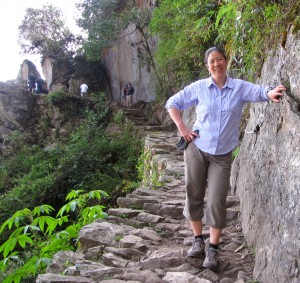From July 1, 2013 to June 30, 2015, the McLean Chair is Professor Tina Loo from the Department of History. A member of UBC’s Department of History since 2003, she has held the Seagram Chair in Canadian Studies at McGill University (1997-1998) and a Tier II Canada Research Chair in Canadian Environmental History (2003-2013). Her work has been recognized with awards from the Canadian Historical Association, the Canadian Federation of Humanities and Social Sciences, and the Canadian Historical Review.
Tina Loo’s research explores the nature of state power, an inquiry that began with her first book, Making Law, Order, and Authority in British Columbia, 1821-1871 (1994), an examination of colonial rule in nineteenth-century British Columbia, and continued in a second monograph dealing with wildlife conservation in twentieth century Canada called States of Nature (2006). Her most recent work on dam-building in postwar British Columbia explores the rationale for and the impacts of these development projects, including the relocation of people deemed in the way of “progress.”
Currently, Prof. Loo is working on a project that extends and broadens her exploration of development and displacement and which will be the subject of her McLean lectures. “Moved by the State” looks at different episodes of forced relocation in postwar Canada involving Inuit, Newfoundlanders, Quebeckers, Africadians, and Chinese-Canadians. In doing so, it examines the meanings of “a good life” at the heart of the liberal welfare state, exploring the tension inherent in moving people against their wills to fulfill their potential as individuals. The state addressed, but never entirely resolved this paradox by designing various processes and institutions of consultation to involve people in shaping the policies and programs that affected their lives. Self-determination was, after all, at the core of what “a good life” was. In this sense, “Moved by the State” is also a chapter in democracy’s Canadian history.
Her CDST 450 seminar in Winter 2013 explores how history is produced and the purposes to which it is put by the state. With the upcoming centennial of the start of World War I and the 150th anniversary of Confederation, “Past Tense, Present Conflict: History, Heritage, and Memory in Canada” will help students understand the hoopla through a set of readings that explore previous fights over the interpretation of the past, from, for instance, choosing who gets to be a “founding father” to how it came to be and what it means to have the Mounties, a police force, as a symbol of Canada.

